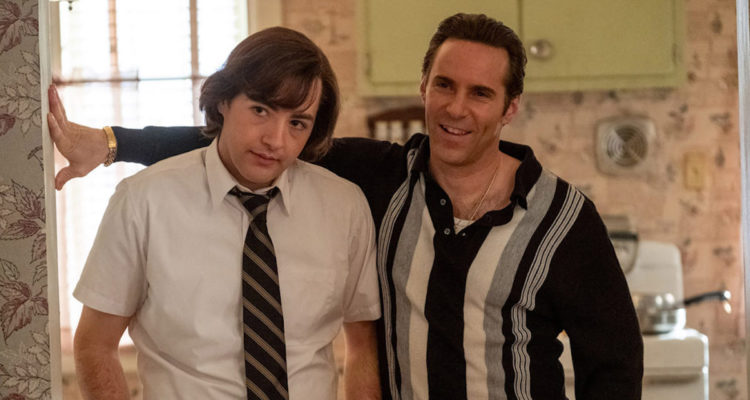The list of names of those who have had a greater impact on television than David Chase is exceedingly short, if such a list exists at all. Chase made his debut in the medium in 1971, as a one-off writer for “The Lawyers,” penning the episode “In Defense of Ellen McKay.” Chase went on to work as the story editor for the influential horror-thriller series “Kolchak: The Night Stalker,” and then as a writer and producer for four seasons of “The Rockford Files,” where he won his first Emmy. Chase built a career over more than 20 years as an efficient and professional producer on several successful shows, and by the mid-1990s, he was a highly coveted showrunner.
READ MORE: ‘The Many Saints Of Newark’ [Review]
Enter “The Sopranos.” Drawing heavily from his personal life, Chase wrote what was originally a feature film screenplay about “a mobster in therapy having problems with his mother,” which, in 1995, he adapted into an idea for a television series. Four years later, “The Sopranos” made its debut on HBO and changed television forever. Centered around the late James Gandolfini‘s masterful portrayal of Tony Soprano, “The Sopranos” ran for six seasons, with Chase officially credited as a writer on 30 episodes, but having contributed to all 86. Heralding a new “Golden Age” of television, “The Sopranos” has been cited by Vince Gilligan as a direct inspiration for “Breaking Bad,” and by Matthew Weiner—who worked on the show in its latter two seasons—as having changed his approach to “Mad Men.” This is to name only two of the best shows to come out in the 21st century which have been influenced by “The Sopranos.”
Now, 15 years after the series finale, Chase is returning to the world of his iconic New Jersey crime family with “The Many Saints of Newark,” set roughly 30 years before the first season of the show. The film stars Michael Gandolfini playing his father’s iconic character in his late teens, caught up in a tumultuous time of change, and in his idolization of his uncle Dickie Moltisanti (Alessandro Nivola). It’s a film that demands being seen on a big screen, and David Chase has refused to mince words about the film’s hybrid release. “I’m so glad you said [to see it in a theater] so I don’t have to,” said Chase, when I sat down to chat about the film with him. “It’s a different experience and worth the effort. Seeing it in a theater for the first time was a delight.”
Chase, who wrote “The Many Saints of Newark” with fellow “Sopranos” alumni Lawrence Konner, approached the project with the intent of making a great gangster film while expanding the show’s universe. “We just set out to make whatever a good gangster movie is,” said Chase. “Betrayal, overreaching, moral blindness, to me, [are qualities that] make really good gangster movies.” Some of those qualities can be found in the character of Harold McBrayer (Leslie Odom Jr.), an associate of Dickie’s who splinters off to create his own criminal empire. As an entirely new addition to the “Sopranos” universe, McBrayer comes in as something of a clean slate, and there might even be room for the character in a future project opposite a Tony Soprano who would then be in his 20s. “That would be interesting,” said Chase. “That never occurred to me, [to make a film about McBrayer and Tony]. That would be really cool.”
The story is set against the backdrop of the Newark Race Riots of 1967, something the filmmakers had to approach with care. However, in the film, Chase’s deplorables, content with the status quo and the privileges it’s afforded them, don’t necessarily take notice of or care much about the changing landscape around them, making for a dying breed making a desperate last gasp to survive. “I think the majority of humans are not really plugged into what’s going on,” said Chase. “Their own close life is what preoccupies them. It kind of has to do with ‘may you live in interesting times.’ What does ‘interesting’ mean? World War II? Donald Trump? How aware are you of that? I don’t think [these characters] are that aware.” On whether or not this detachment from the world is a contributing factor to the characters’ difficulties, Chase added, “it would seem to me that before you embark on a path of robbing and killing, you need to be aware that chances are you will be caught.”
During our conversation with Chase, we also discuss why it’s important for audiences to see “The Many Saints of Newark” in theaters, the origins of the film dating back to right after graduating film school, meditations on faith, and parenthood, and much more!
“The Many Saints of Newark” hits theaters on October 1st, 2021, and will simultaneously make its streaming debut on HBO Max for one month.

